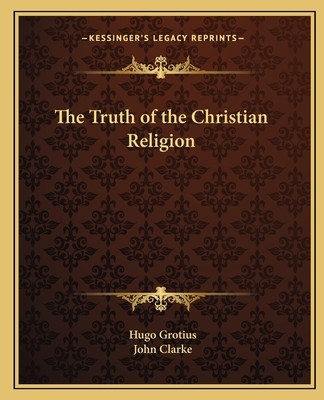
- We will send in 10–14 business days.
- Author: Hugo Grotius
- Publisher: Kessinger Publishing
- ISBN-10: 1162632887
- ISBN-13: 9781162632889
- Format: 19.1 x 23.5 x 1.8 cm, minkšti viršeliai
- Language: English
- SAVE -10% with code: EXTRA
Reviews
Description
1819. Grotius, a pioneering natural rights theorist, defined natural law as a perceptive judgment in which things are good or bad by their own nature. This was a break from Calvinist ideals, where God is the only source of ethical qualities. These things that are by themselves good are associated with the nature of man. Grotius, a humanist and Dutch patriot, struggled with Calvinism all of his life. In this struggle, he dealt with the international laws of war and issues of peace and justice. Although most famous for his theories of natural law, Grotius was also considered to be a great theologian. This volume is also illustrated with notes from Mr. Le Clerc. Due to the age and scarcity of the original we reproduced, some pages may be spotty, faded or difficult to read.
EXTRA 10 % discount with code: EXTRA
The promotion ends in 22d.21:29:50
The discount code is valid when purchasing from 10 €. Discounts do not stack.
- Author: Hugo Grotius
- Publisher: Kessinger Publishing
- ISBN-10: 1162632887
- ISBN-13: 9781162632889
- Format: 19.1 x 23.5 x 1.8 cm, minkšti viršeliai
- Language: English English
1819. Grotius, a pioneering natural rights theorist, defined natural law as a perceptive judgment in which things are good or bad by their own nature. This was a break from Calvinist ideals, where God is the only source of ethical qualities. These things that are by themselves good are associated with the nature of man. Grotius, a humanist and Dutch patriot, struggled with Calvinism all of his life. In this struggle, he dealt with the international laws of war and issues of peace and justice. Although most famous for his theories of natural law, Grotius was also considered to be a great theologian. This volume is also illustrated with notes from Mr. Le Clerc. Due to the age and scarcity of the original we reproduced, some pages may be spotty, faded or difficult to read.


Reviews